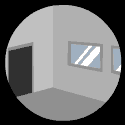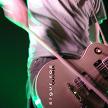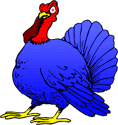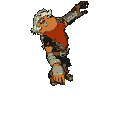|
Well, I've noticed that there are a fair amount of people that seem to want to start learning piano every week or so. If you're one of these people, let's get you started! Knowing your goals One way that I think that piano stands out from other instruments is how different you go about learning the instrument depending on what you want to do. So basically the first thing you need to ask yourself is; Do I want to play Jazz? Do I want to be able to hammer out Cold Play for my girlfriend? Do I want mad technique like Horowitz while having the touch of an Angel like Lang Lang? Once you know this, skip down to whatever catagory applies to you. I want to play "Clocks" by coldplay Ok, if you don't want to invest major time into learning the piano and you don't want to make an investment or have a teacher, this is probably where you'll end up whether you like it or not. So now that you know that let's make the best choices we can with what we've got. Selecting an instrument If you're not really wanting to learn anything serious and don't feel that you will have that much time to devote to this past time I definitely recommend buying a Keyboard. It's compact, hopefully less costly then a piano, you can play it whenever you like without any noise restrictions and if you wanted to join a band all you have to do is throw 30LBS in your car! There are many features of a keyboard, a key one being weighted keys. This is the difference between a thin piece of plastic and something that is meant to replicate the feel of a real piano. Why does it matter? Well, playing a non weighted keys keyboard is like rollerblading on a gym floor. It's fast, it's easy, but it can't be compared in any way to skating on ice other then the standard motions. This is the same, don't expect to be able to play a real piano as efficiently as if you were playing your keyboard at home. The other features of a keyboard are immense ranging from arpeggiators to recorders. Figure out what bells and whistles you think you'll need and then make a smart choice  . .Gigging, keeping noise down and size restrictions don't matter to you? I recommend then buying a used upright piano (Yamaha is what I would recommend). The best place to find deals on these are local churches. If you're lucky they'll be upgrading their choral room upright and most likely sell it for 3-400$! The prices that you'll see when buying electric keyboards or used uprights standardly vary from 1-300 dollars - 76-88 Key non weighted keyboard 3-700 dollars - Weighted keyboard or used upright piano A new upright Yamaha will set you back $2000 and a top of the line keyboard will do the same. These are just ballparks though so you could be looking to spend a little more or a little less How I should practice Despite the fact that you're not going to need big technique to play Umbrella by Rihanna it's always a good thing to have some simple things to practice before you decide to practice the song that you've been wanting to learn. I recommend starting off with 5 Major Scales and three note chords. If you don't know what a Major scale is it's probably best to consult the theory thread same with chords. I recommend simply learning C, G, F, E and B major. That will start you off. What you're going to want to do is start by playing the scale with one hand only at a slow tempo. Bring the speed up on the one hand and then do so with the other hand. After this, bring the speed back down to the original tempo and learn both hands together. It is VERY IMPORTANT THAT YOU USE THE SAME FINGERING EVERY TIME YOU PLAY SOMETHING. Knowing all the notes is great but when you want to increase the speed without thinking or memorizes things easily, muscle memory is the way to go. Now that you've gotten your little bit of technical work out of the way, start learning the songs the same way with exception to speed. Simply learn one hand first, then the other hand seperately then put these two hands together. After you do this bring up the speed. If it's hard, learn it in small parts, if it's easy then you can probably judge how far you can learn in a week. I want to play Jazz piano Starting out The best way to learn how to improvise is to KNOW how to improvise. This means that you'll need to hit the theory books  . I definitely recommend having a teacher. When you go to select a teacher don't just do it based on how decorated his wall is or how cool he looked at a gig. Not everyone can teach piano properly even if they're good at it. And, not everyone who was a Professor at Juliard will make the best choice ( Well maybe if it's JULIARD ... :P ). . I definitely recommend having a teacher. When you go to select a teacher don't just do it based on how decorated his wall is or how cool he looked at a gig. Not everyone can teach piano properly even if they're good at it. And, not everyone who was a Professor at Juliard will make the best choice ( Well maybe if it's JULIARD ... :P ).Select your teacher and ALWAYS listen to what he says about your technique, if there's anything that you get out of having a teacher it's learning good technique. If you don't, you'll be crippled down the road when you want to learn anything of actual challenge. Selecting an Instrument This one is a lot more about personal preference in my opinion and again what you'd like to get out of it. Jazz relies a lot on touch so it's preferred to either have a real piano or a weighted keyboard. (See "I want to play Clocks" - Selecting an instrument) I want to play like that starving jewish guy in the Pianist! Starting out Above all else, becoming a decent classical musician requires the most time out of anything you'll probably ever want to do. Do you want to play Chopin's Ballade in G Minor? Ok, see you in 9 years. I don't want to push you away but at the same time I want people to know their limitations. Playing the most complex pieces possible will take time patience and maybe even some natural talent. BUT, ITS ACCOMPLISHABLE!! How to go about doing this? GET A TEACHER. This is basically a MUST if you want to play classical music well. Technique is most important as you grow as a musician and begin to learn newer pieces. Listen to everything your teacher says and tell them exactly what you're wanting to get out of it. The mindless technical work, the silly fingerings, the dumb hand positions and posture. They are ALL things that you need to take seriously and learn. There's nothing harder to do then fix bad habits. Selecting an instrument All I can say here is that you need to have a real piano. Despite our amazing keyboard technology nothing rivals real sound. Start off with an used upright and work your way up to a used baby grand  . I myself believe that used pianos are better then buying new because you'll most likely get more bang for your buck. Just go to a piano store and ask one of the people working there to show you what would work for where you're at and have him play you a little ditty. But, remember that the sound that you're hearing standing 5 feet from him is not necessarily the sound you'll hear sitting and playing. . I myself believe that used pianos are better then buying new because you'll most likely get more bang for your buck. Just go to a piano store and ask one of the people working there to show you what would work for where you're at and have him play you a little ditty. But, remember that the sound that you're hearing standing 5 feet from him is not necessarily the sound you'll hear sitting and playing.---------------------------------------------------------- Well, I hoped this helped you out a little bit if you have any other questions feel free to ask.
|
|
|
|

|
| # ? Apr 19, 2024 06:59 |
|
I don't know where you live, but a new Yamaha upright piano is at least $10,000 and a good used one is at least $3-4000. You generally don't want to go anywhere near a $300 used acoustic piano, unless you want to spend at least that much again to get it even moderately playable. Also, if you want to play jazz, get a teacher and get this book: http://www.amazon.com/Jazz-Piano-Book-Mark-Levine/dp/0961470151/ref=pd_bbs_sr_1/104-4347935-8849524?ie=UTF8&s=books&qid=1188736187&sr=8-1
|
|
|
|
the Steve posted:I don't know where you live, but a new Yamaha upright piano is at least $10,000 and a good used one is at least $3-4000. You generally don't want to go anywhere near a $300 used acoustic piano, unless you want to spend at least that much again to get it even moderately playable. code:UK£ 1 495 = 3 014.219 U.S. dollars I don't think that any beginner should be playing on U1 uprights or anything like that. The way I look at it, if you can't tell if you're instrument is good or not, you shouldn't be buying anything higher than a student model. Where I am located we have a dealer that offers 100% trade in value on all pianos bought from him, so it makes perfect sense to buy a B1 and then upgrade to a U1 then upgrade to a Baby Grand. Again, not every $300-500 used upright is going to be golden but the point is to try to find a good deal. Unless you think that the highest quality custom upright Grand from yamaha is what a beginner should start out with I believe that your prices are far from realistic. Alizee fucked around with this message at 13:57 on Sep 2, 2007 |
|
|
|
That's a good price for those low end Yamahas. I own a music school and I have 6 pianos for my teachers to teach on (mostly U1), and yes I believe people should learn on a U1 or better if they can. It makes more sense to buy a used U1 than a crappy bottom end new piano. And especially more sense than grandma's old "upright grand" from the 1920s. If you're not getting a good piano because you don't care about the action that much, then just get an electric so you don't have to deal with tuning twice a year and moving it around, etc.
|
|
|
|
Why do you believe that they should learn on u1's or better when they most likely can't even tell the difference yet? I'm pretty sure the biggest problem I ever had when learning piano was the fact that my U1 had such heavy keys, it made it ridiculously hard to go and play on my teachers 40 year old light action grand and get the sound I made so easily at home.  But still I would prefer that over a keyboard. I have a Korg Triton Extreme and it's deffinitely a bad idea to do serious practicing on it when trying to perfect my touch But still I would prefer that over a keyboard. I have a Korg Triton Extreme and it's deffinitely a bad idea to do serious practicing on it when trying to perfect my touch  And a side question for you, do you open up the front of your U1's? I personally can't because well it doesn't flatter the living room very much and others live with me but I would certainly do so in a studio as I love how vibrant the sound becomes.
|
|
|
|
Thanks for this post. I found it quite interesting if a little lacking in detail but I appreciate it's much too difficult to cover all situations in any depth. If I may, I have a question about my fingering technique. Say I play a major scale, C Major for this example, using my right hand: code:This is the correct technique, right? What about for the left hand? Is it: code:code:code:code:
|
|
|
|
Your fingers are numbered 1, 2, 3, 4, 5, thumbs being 1. Wow - it took some Googling to find accurate scale fingerings. This page seems ok: http://www.audiblefaith.com/artists/rharrell/music/pianoscales.html I've already said why I think students should learn on a good piano if they're going to bother getting an acoustic in the first place. Not all my U1s have heavy action. Some resistance is good and helps you develop strength. If you're able to smash the keys down with little effort, how are you supposed to play with a variety of velocities? No - I don't generally open my pianos as I'm usually either writing or reading music when I'm at the piano.
|
|
|
|
Sorry to derail slightly, but this thread seems more relevant than starting a new one... I've been playing for 8 months now, with a teacher for 3 of those, and have done the whole clocks by coldplay bit, and am moving onto some Bach, Satie, the easier side of 'classical' (for technique, not really what i'd want to play). Anyhow all this time i've been using a budget £100 Yamaha keyboard, and i'm now looking to upgrade - something with weighted keys, and something 'gig-able'. Are there any recommendations in the £2-300 range? ($400-600)? I know very little about various brands etc, and so any help would be appreciated!
|
|
|
|
The most important thing about buying a keyboard is the touch. Since you've had at least 3 months experience playing a real piano with your teacher you will probably have a clue what kind of touch is nice. Get into a music store, start playing the keyboards and whatever jumps out at you that feels really nice take to the check out. A few things you might want to consider though, -Do I want a lot of voices? -Do I want built in speakers -Do I mind buying used -Am I going to be doing recording? If so, do I want to record to midi, usb, etc.? A few things you NEED -88 keys -Damper Pedal (try to get them to throw one in for free) -Good Headphones, unless you live alone in a large house headphones are wonderful when you get the urges late at night or early in the morning  I recommend especially since you have a budget to get whatever has the best feel and is most compact. I wouldn't worry about voices myself because you can always get one of those midi controller thingies :p As long as you stick to Roland, Yamaha and Korg (in no perticular order) you'll be good. Hope that helped a bit, sorry I can't recommend specific models but I never shopped for a bang for your buck keyboard  Happy hunting 
|
|
|
|
Are there any good beginning books out there for beginning jazz piano? I know a crapload of theory (I'm a jazz bassist), but when it comes to voicings and what not on the piano, I'm lost.
|
|
|
|
Do you have any advice for someone looking to use a keyboard for composition and not for performing? Like, learning the layout and I guess theory... I already have a midi keyboard, an M-Audio 49e
|
|
|
|
Dont forget, just like any instrument, set time aside to rock out to stuff you like. Try playing the hook to Zep's Immegrant Song. Octaves on F#, passing tone with an A, then slam an E5. As for the melody, its C, octave, B, C. Super easy and super fun at parties.
|
|
|
|
MiStArFuNk posted:Are there any good beginning books out there for beginning jazz piano? I know a crapload of theory (I'm a jazz bassist), but when it comes to voicings and what not on the piano, I'm lost. Check out the Jazz Piano Book by Mark Levine. He has excellent exercises specific to piano. If you know the theory, what he has you doing will make a lot of sense.
|
|
|
|
External Organs posted:Do you have any advice for someone looking to use a keyboard for composition and not for performing? Like, learning the layout and I guess theory... Shouldn't matter what you're using if it's composing, hell I've composed on a 3 dollar My first Piano toy because I just needed something for pitch :p
|
|
|
|
This is helpful. I've been messing around on a 76-key keyboard I got recently for a few months, learning some basics songs through Youtube instruction. I'll look up information on the chords mentioned in the OP and practice those.
|
|
|
|
ProdigalSon posted:This is helpful. I've been messing around on a 76-key keyboard I got recently for a few months, learning some basics songs through Youtube instruction. I'll look up information on the chords mentioned in the OP and practice those. I really recommending you spend $7.50 and pick up "THE BROWN SCALE BOOK" (scales, chords and arpeggios for piano). Published by Frederick Harris Music. It's really worth the money and gives exactly what it says, all the chords scales and arpeggios for all the major, natural minor, harmonic minor and melodic minor keys in addition to A LOT more. ProdigalSon posted:This is helpful. I've been messing around on a 76-key keyboard I got recently for a few months, learning some basics songs through Youtube instruction. I'll look up information on the chords mentioned in the OP and practice those. I really recommending you spend $7.50 and pick up "THE BROWN SCALE BOOK" (scales, chords and arpeggios for piano). Published by Frederick Harris Music. It's really worth the money and gives exactly what it says, all the chords scales and arpeggios for all the major, natural minor, harmonic minor and melodic minor keys in addition to A LOT more. http://www.frederickharrismusic.com/fhmcCN/catalogue?selection=details&code=258 Alizee fucked around with this message at 20:02 on Sep 5, 2007 |
|
|
|
Very interesting post, and one I've been popping into Musician's Lounge occasionally hoping to read. A couple of months ago I fished out my brother's 61 key rather cheap keyboard with the motivation to be somewhat competent at piano. Obviously i wasn't going to be able to learn how to properly play piano on such a cheap piece of equipment, but I wanted to learn the theory and see if I stuck with it. I've been really enjoying it and now want to get better. Your post was interesting and helps me structure my future somehow. My aim is a mix of the two goals you mentioned. My long term, years long goal is to be able to play classical music. I'm not expecting to perform concertos, but be able to play for my own enjoyment. In the more short term, whilst I learn the theory, I have been learning the chords and simple melodies to songs (stuff like Muse which seems piano friendly), however I really want to be able to learn the theory so I can both improvise and play with others, and maybe write so very very mediocre stuff myself one day. So what do I know now? Well, from here I have learnt a lot of the basics, major and the many minor scales (and more importantly for me, mnemonics that help me remember the number of semitone gaps between each), arpeggios, the many triads (and how to work out what they are by just seing the name) and inversions. That's put me at a state where I kind know some basic theory and I'm hungry for more 1) I am fitting in a schedule to practice everyday, for an hour. Any suggestions on what to concentrate on and for how long? Should I set myself goals of pieces to play by certain times. Just general practice advice really. 2) I'm very confident with my right hand but seem noticeably weaker with my left hand. Obviously something I have to work on, just wondering if anyone else had this and how they overcame it. 3) What should I turn to next? Considering my goals, should learn to improvise (more importantly, how?!) or learn to play standard pieces? If it's down to preference, won't one be better to learn first to make the other easier? All these questions and more will be helped if I find myself a teacher which I think I will end up doing in the next month or so but until then I'd appreciate any advice. I'm looking up the Brown Scale Book you linked and am happy to invest in that (if I can find it in the UK), but looking forward to other contributions form pianists here to pick up tips.
|
|
|
|
Fat Turkey posted:
What do mean by this? Is it that the left can't hit the notes good at all, or is it that it's hard to play left and right at the same time? Anyway, I would suggest you go and learn some songs. A good one to start with is Fur Elise if you're looking for the classical track. House of the Rising Sun (notably done by the Animals)is good if your looking for arpeggios. EDIT: Also everyone get a Fake Book. I learned a crapload from those things.
|
|
|
|
Nog64 posted:What do mean by this? Is it that the left can't hit the notes good at all, or is it that it's hard to play left and right at the same time? Anyway, I would suggest you go and learn some songs. A good one to start with is Fur Elise if you're looking for the classical track. House of the Rising Sun (notably done by the Animals)is good if your looking for arpeggios. Well, on it's own it is notably slower than the right hand and trips up a bit more (probably down to practice though), but I'm really it hard to play left hand and right hand at the same time also. I know both those pieces so I'll go search fo the sheet music, thanks. I do not know what a Fake Book is. Sounds mysterious.
|
|
|
|
Wiki puts the idea through pretty good: basically, fake books let you learn lots of songs in a short amount of time. They come in jazz, classic, gospel, rock, etc. You can start off using them by just hitting the the triad with your left hand and the melody with your right, and work it out from there.
|
|
|
|
Fat Turkey: I recommend buying a RCM Studies book, this will both aid you in your quest to become fairly proficient at classical music and will help you to become proficient in all aspects of playing. The point of these studies is to help develop all aspects of your playing. A lot of these songs can be dissected very easily to something as simple as " Oh this song is just scales with dominants in the left hand " or " Hey this song is just diminished seven chords played quickly with lots of leaps ". That may sound like a turn off because, hey, you're playing a piece that's just scales... but a lot of the greatest pieces ever written can be broken up just as easily. The hard part for you would be finding out what Grade level you are. Do you have a piece that you think is the hardest that you can play well with no mistakes? Knowing what this is would help place what Grade you'd be able to play in. P.S. I don't know if you know anything about RCM but it is the Royal Conservatory of Music, a standard followed by Britain and Canada I know for sure, not sure about other countries. There are 10 Grades and then ARCT. For example, Fur Elise is a Grade 7 piece, and Moonlight Sonata Third movement is an ARCT piece. The RCM provides books consisting of Piano Repertoire, Piano Studies, Theory work books and other things that I haven't even gotten into myself. The great thing about buying these books is that they provide groups of wonderful pieces for that Grade level breaking them up into categories such as Baroque, Classical, Romantic, 20th Century. So that by simply picking out songs from each list (A,B,C and D) you will have a great variety in your playing and basically have an instant program. [EDIT] I got so caught up in trying to help you with ways to fix your left hand that I totally forgot about your wanting to improvise. I don't improvise myself but I've always thought before you can start creating any music with the goal in mind to create something great is you first need to know why something sounds great. Aka, before you can write a great song, you have to know how. So I'd probably start with song analysis, when you start to see patterns you'll not only be able to sight read better, memorize songs better but also you'll be able to draw from that knowledge when your creating something. I assume the same would be true for on the spot improvisation. Alizee fucked around with this message at 01:13 on Sep 7, 2007 |
|
|
|
Hey, I have a question: How do I write solos for keyboards (i.e. ones in old Heavy Metal songs)? Do I do the same as impov?
|
|
|
|
Alizee posted:I really recommending you spend $7.50 and pick up "THE BROWN SCALE BOOK" (scales, chords and arpeggios for piano). I don't think I'll be able to pick this up as I'm located outside of the US, but is there a website you recommend that would be a similar aid?
|
|
|
|
Alizee posted:Fat Turkey: I recommend buying a RCM Studies book, this will both aid you in your quest to become fairly proficient at classical music and will help you to become proficient in all aspects of playing. You sir, do not have to explain away the necessity of learning theory, that is the route that I have been wanting to take all along and with your helpful advice I hope I might get there! One of my personal goals is to get to a level where I can listen to a piece of music and recognise what it does (scales with dominants in left hand for example) and really understand the theory behind it. I'm not looking for the quick fix learn-how-to-play-the-songs-but-not-know-why-they-work-as-music line. You seem to understand this and so I'm happy to follow your instructions. quote:The hard part for you would be finding out what Grade level you are. My grade level is pretty easy. None. All I've ever done is practice scales and memorise scale sequence, and practice arpeggios and inversions. Slowly but surely I think I'm getting better but still not actually any good. I'm not yet tried to play a song beyond at the end of practicing, hammering out the chords to songs I like. I have downloaded a copy of Fur Elise cheet music from https://www.furelise.com and will give that some practicing. If you have any other recommendations for individuals songs to find out my level, go ahead. If we find a level I seem to be at, I'll happily buy the grade book (from the UK). Your suggestion sounds the best way for me to go as although I acknowledge a teacher would be best, I'd like to get a little better before I do it. quote:
You say start with song analysis, but I don't understand yet how to analyse songs. Don't really like the sound of a fake book. Seems fine if you want a 'cheat shete' way of playing some selected music, but I'd like to know the proper way of learning music.
|
|
|
|
I think the idea of "getting a little better" before seeking out a teacher is a bad one. At the beginning of learning to play the piano is where it's of the greatest importance to have proper instruction. And also, you may be thinking that a teacher doesn't want somebody that knows nothing. Well, you'd actually be the ideal starting student for a teacher, you've already started learning chords and arpeggios before learning songs and understand the importance of theory. (It took years to drill into my young mind that technical work was more important to learning a piece than learning a piece) :P. Um... How about the Little Prelude in D Minor BWV 926 - J.S. Bach It's a G6 piece and it's one of my favorite early easy pieces. It has nice little ornaments too in the left hand and a quick passage on the second page with 16 notes. Good luck!
|
|
|
|
I just picked up a M-Audio MIDI keyboard with 49 keys. It was only $200 and I really got it to also learn Keyboard. How do you recommend I start out? I have GarageBand which basically simulates a grand piano but I seriously have no idea where to start. Secondly, although it isn't really Piano related, does anyone have any advice on what program to use for my M-Audio for mac? GarageBand recognized it right away and worked pretty well but I'm looking for a program that can assign knobs/triggers/buttons. The manual said Ableton Live but I couldn't set it up for the life of me, I've also heard good things about Logic Express (cheap enough for me, only $150), Reason, and a few other programs. Corb3t fucked around with this message at 08:39 on Sep 8, 2007 |
|
|
|
Corbet posted:I just picked up a M-Audio MIDI keyboard with 49 keys. It was only $200 and I really got it to also learn Keyboard. How do you recommend I start out? I have GarageBand which basically simulates a grand piano but I seriously have no idea where to start. Haha, you're me.
|
|
|
|
Corbet posted:I just picked up a M-Audio MIDI keyboard with 49 keys. It was only $200 and I really got it to also learn Keyboard. How do you recommend I start out? I have GarageBand which basically simulates a grand piano but I seriously have no idea where to start. Can you read notes? If so, learn some scales grab a few beginner books and get to work. If not, you need to learn them lol. Flats, sharps, key signatures, accidentals, rests, etc. etc.
|
|
|
|
What exactly does learning the Major scales accomplish? I\'m going through this kid\'s lessons on YouTube and I am learning alot, but he hasn\'t really explained what exactly the scales result in. C Major was incredibly easy but I haven\'t learned the rest yet. I\'ll probably need to go through his lessons 3-4 times before I remember it all.
|
|
|
|
Corbet posted:What exactly does learning the Major scales accomplish? I\'m going through this kid\'s lessons on YouTube and I am learning alot, but he hasn\'t really explained what exactly the scales result in. C Major was incredibly easy but I haven\'t learned the rest yet. The majority of music is built upon scales. Learning the fingerings of the scales makes learning the fingerings of songs natural and easy, and correct fingering is vital for playing highly technical pieces. Scales are also the best way to familiarize yourself with the keys in advance. If you know the scales, you'll know all the notes you should play, for any key signature.
|
|
|
|
I just picked up a Yamaha YPG-625 yesterday and it feels pretty nice. I want to make sure if this is a wise purchase, though. It seems to be a real good keyboard (the lowest A kinda buzzes the speakers when it's at max volume, though). I'm also taking a class at my local college but we only meet up once every week at Saturdays. Being that the pace is changed dramatically from the usual three or two days a week, should I try to advance a little on my own? edit: I saw a 8,000 dollar keyboard at the same store and that made me all ShinAli fucked around with this message at 20:03 on Sep 9, 2007 |
|
|
|
I got to a local community college and I was looking at their programs and noticed they had piano classes. Would you guys recommend it? I may take one next semester, although it doesn't really do anything for my major I'm really serious about learning and I'd imagine classes would be the best.
|
|
|
|
Corbet posted:I got to a local community college and I was looking at their programs and noticed they had piano classes. Would you guys recommend it? I may take one next semester, although it doesn't really do anything for my major I'm really serious about learning and I'd imagine classes would be the best. Remember that they are group classes, not individual lessons. I've never taken one, but I'd imagine the teacher wouldn't be able to spend enough time on correcting individual problems, which will lead to bad habits. And after all, you might be done with their most advanced class in a year or two. A private teacher could teach you for as long as you like, would correct all your mistakes immediately, and would be much more flexible to you and your needs. The classes would probably be a lot cheaper though 
|
|
|
|
brnai posted:Remember that they are group classes, not individual lessons. I've never taken one, but I'd imagine the teacher wouldn't be able to spend enough time on correcting individual problems, which will lead to bad habits. And after all, you might be done with their most advanced class in a year or two. A private teacher could teach you for as long as you like, would correct all your mistakes immediately, and would be much more flexible to you and your needs. Yeah, I really can't afford private lessons, I'd imagine they are expensive 1 on 1. The classes at the local college max out at 16 students, I looked at this semester's classes and the average size is 13 people. If you're a music major you can take a class that only has a max of 4 people but sadly I am not a music major.
|
|
|
|
I've taken a classical guitar course at my community college once. It wasn't really bad, per se, it just took a little longer. Classes usually go as one whole lecture/lesson for everyone, then everyone else practices as the instructor goes around from student to student to provide individual instruction. Oh, and if you know how to read sheet music, you'll be bored out of your mind for the first few classes. After you have taken care of the class(es) for the specific instrument, my college offers one on one classes for those that have finished the classes OR already know what the class would teach them.
|
|
|
|
ShinAli posted:I've taken a classical guitar course at my community college once. It wasn't really bad, per se, it just took a little longer. Classes usually go as one whole lecture/lesson for everyone, then everyone else practices as the instructor goes around from student to student to provide individual instruction. Well currently I've just been watching this kid's YouTube videos, let me know what you guys think: http://www.youtube.com/user/Lypur I'm on Lesson 7 and I know how to read sheet music a bit (Back in 7th grade musical class we had to remember it, when I watched the lessons it all came abck to me) but I'm going back through the lessons again so I'll actually remember it.
|
|
|
|
the Steve posted:Also, if you want to play jazz, get a teacher and get this book: http://www.amazon.com/Jazz-Piano-Book-Mark-Levine/dp/0961470151/ref=pd_bbs_sr_1/104-4347935-8849524?ie=UTF8&s=books&qid=1188736187&sr=8-1 Everyone quotes this book as the first/only jazz piano book to get, and while I do own a copy and find it to have a lot of great information, I think this book teaches things in a way that's a lot more intuitive (at least, it was for me): Meta phors for the Musician: Perspectives from a Jazz Pianist by Randy Halberstadt. I'm a little bit biased, as he is my teacher, but I have found this book to be amazing. In addition to being a great teacher, in person and in book form, he's a hell of a player too: clip Just another book to consider adding to your repertoire as a jazz pianist.
|
|
|
|
Corbet posted:Yeah, I really can't afford private lessons, I'd imagine they are expensive 1 on 1. The classes at the local college max out at 16 students, I looked at this semester's classes and the average size is 13 people. My private teacher is only $30 CAN an hour, I see her once a week for an hour and she's quite an accomplished musician. She also does half hour lessons for $20 so if anyone's really serious about learning the instrument I'm sure they could find some way to squeak out $20 dollars 
|
|
|
|
Corbet posted:What exactly does learning the Major scales accomplish? I\'m going through this kid\'s lessons on YouTube and I am learning alot, but he hasn\'t really explained what exactly the scales result in. C Major was incredibly easy but I haven\'t learned the rest yet. I eyed up those kid's videos and they're not bad for a free quick lesson where you can see and hear what you're supposed to do, not just reading from a book/screen (initially). He himself would admit he is gpoing through it very quickly and what he is showing requires you to practice a lot to commit it to memory. I'd say it's good to test the water. I've linked this page before because it was a really nice introduction to piano theory, but I promise I'm not affliated it or anything. I just think it outlines scales, triads, inversions and arpeggios well. You said you had trouble memorising the scale order, with C being easy. I'm going to guess wherever you learnt about scales talked about them but didn't explain how to work them out, or didn't do it in a memorable manner. I have the order for each key memorised for major, harmonic and melodic minor scales, so hopefully I can pass it on this tip. Below are the 'mnemonics' I've learnt for them, which I sing in my head as I play the notes, to the tune of "Do Re...Do". The initial note I say W but it's just a placeholder, all other words remind me how many keys to move up. Major Key - (W)WWHWWWH. So I know from the initial note, to jump up two semitones twice, then a single semitone, then three sets of two semitones, then a single semitone. Practice it on the C major scale to get the idea, then try on other scales. Natural Minor - (W)WHWWHWW Melodic Minor (Ascending) - (W)WHWWWWH Melodic (Descending, so playing downwards) - (W)WWHWWHW Harmonic Minor - (W)WHWWHMH - H = Half = moving up one semitone, one key, usually from white up to black or black up to white. W = Whole = moving up two semitones, two keys, usually from white to the next white, or black to black. M = More = moving up three semitones, three keys. - So for A Major Scale, I [PLAY] and (SAY): [A](Whole), [B](Whole), [C#](Whole), [D](Half), [E](Whole), [F#](Whole), [G#](Whole), [A](Half). For G Harmonic Minor: [G](Whole), [A](Whole), [A#](Half), [C](Whole), [D](Whole), [D#](Half), [F#](More), [G](Half). I hope that makes sense. I use it because it just means I have to remember five variations of the words whole, half and more. With those memorised, I can start at any key and play any of those four scales, just by recalling the mnemonic. Very useful indeed. Fat Turkey fucked around with this message at 23:50 on Sep 10, 2007 |
|
|
|

|
| # ? Apr 19, 2024 06:59 |
|
A shame to see such a great and useful thread get left behind, if anyone is finding it hard to find sheet music then register here http://www.pianosheets.org/
|
|
|












